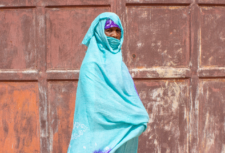Disclaimer: This article is more than 16 years old, and may not include the most up-to-date information or statistics. Please verify information with more recent sources as needed, and if you have any questions contact our Press Office.
1 August 2007
North Korean economic migrants are being deported from China and illegally used as forced labour in North Korean prison camps, a new report from Anti-Slavery International reveals.
Forced Labour in North Korean Prison Camps includes 30 interviews with North Korean men and women who were imprisoned in forced labour camps for crossing the border. Forced labourers are made to work 10-12 hour days, seven days a week and kept in harsh conditions. They are frequently beaten and subjected to degrading treatment and punishment. As one of the women described:
“The work was so difficult and intense that prisoners’ hands and feet were torn and blistered. Everyday, prisoners were hit by team leaders … Everyone had to work, if you didn’t you were hit. Even if you fell from exhaustion, you would still have to get up and continue working…. If you produced less … you received less food…,” the woman told Anti-Slavery International.
The fact these migrants will be punished with forced labour if repatriated means that while they are in China, they are refugees sur place, and entitled to international protection. Most of those interviewed were subjected to forced labour before being prosecuted, which violates international standards as well as North Korea’s domestic law.
“Subjecting migrants to forced labour is not acceptable under any circumstances. Conditions in North Korean prison camps are so harsh that some of those held die without being convicted of any crime. China should stop deporting migrants to North Korea while they are at risk of being subjected to slavery,” the report’s author Norma Muico said.
Anti-Slavery International is calling on the Government of North Korea to:
- Stop the use of forced labour in prison camps;
- Take immediate action to prevent unconvicted detainees from performing forced labour in line with its international and domestic obligations;
- Invite the United Nations Special Rapporteur on North Korea to visit North Korea in order to monitor human rights conditions in the country and carry out a thorough review of conditions in prison camps;
And for the Chinese Government to:
- Recognise North Korean economic migrants as refugees sur place and stop the forcible repatriation of undocumented North Koreans.





